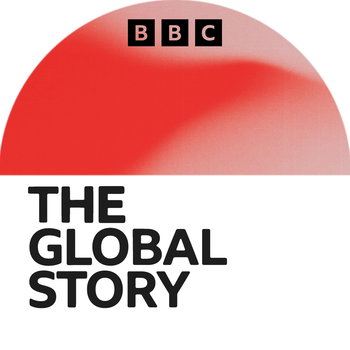
The Waltz (Archive Episode)
Loading player...
Melvyn Bragg and guests discuss the dance which, from when it reached Britain in the early nineteenth century, revolutionised the relationship between music, literature and people here for the next hundred years. While it may seem formal now, it was the informality and daring that drove its popularity, with couples holding each other as they spun round a room to new lighter music popularised by Johann Strauss, father and son, such as The Blue Danube. Soon the Waltz expanded the creative world in poetry, ballet, novellas and music, from the Ballets Russes of Diaghilev to Moon River and Are You Lonesome Tonight. With Susan Jones Emeritus Professor of English Literature at the University of Oxford Derek B. Scott Professor Emeritus of Music at the University of Leeds And Theresa Buckland Emeritus Professor of Dance History and Ethnography at the University of Roehampton Producer: Simon Tillotson Reading list: Egil Bakka, Theresa Jill Buckland, Helena Saarikoski, and Anne von Bibra Wharton (eds.), Waltzing Through Europe: Attitudes towards Couple Dances in the Long Nineteenth Century, (Open Book Publishers, 2020) Theresa Jill Buckland, ‘How the Waltz was Won: Transmutations and the Acquisition of Style in Early English Modern Ballroom Dancing. Part One: Waltzing Under Attack’ (Dance Research, 36/1, 2018); ‘Part Two: The Waltz Regained’ (Dance Research, 36/2, 2018) Theresa Jill Buckland, Society Dancing: Fashionable Bodies in England, 1870-1920 (Palgrave Macmillan, 2011) Erica Buurman, The Viennese Ballroom in the Age of Beethoven (Cambridge University Press, 2022) Paul Cooper, ‘The Waltz in England, c. 1790-1820’ (Paper presented at Early Dance Circle conference, 2018) Sherril Dodds and Susan Cook (eds.), Bodies of Sound: Studies Across Popular Dance and Music (Ashgate, 2013), especially ‘Dancing Out of Time: The Forgotten Boston of Edwardian England’ by Theresa Jill Buckland Zelda Fitzgerald, Save Me the Waltz (first published 1932; Vintage Classics, 2001) Hilary French, Ballroom: A People's History of Dancing (Reaktion Books, 2022) Susan Jones, Literature, Modernism, and Dance (Oxford University Press, 2013) Mark Knowles, The Wicked Waltz and Other Scandalous Dances: Outrage at Couple Dancing in the 19th and Early 20th Centuries (McFarland, 2009) Rosamond Lehmann, Invitation to the Waltz (first published 1932; Virago, 2006) Eric McKee, Decorum of the Minuet, Delirium of the Waltz: A Study of Dance-Music Relations in 3/4 Time (Indiana University Press, 2012) Eduard Reeser, The History of the Walz (Continental Book Co., 1949) Stanley Sadie (ed.), The New Grove Dictionary of Music and Musicians, Vol. 27 (Macmillan, 2nd ed., 2000), especially ‘Waltz’ by Andrew Lamb Derek B. Scott, Sounds of the Metropolis: The 19th-Century Popular Music Revolution in London, New York, Paris and Vienna (Oxford University Press, 2008), especially the chapter ‘A Revolution on the Dance Floor, a Revolution in Musical Style: The Viennese Waltz’ Joseph Wechsberg, The Waltz Emperors: The Life and Times and Music of the Strauss Family (Putnam, 1973) Cheryl A. Wilson, Literature and Dance in Nineteenth-century Britain (Cambridge University Press, 2009) Virginia Woolf, The Voyage Out (first published 1915; William Collins, 2013) Virginia Woolf, The Years (first published 1937; Vintage Classics, 2016) David Wyn Jones, The Strauss Dynasty and Habsburg Vienna (Cambridge University Press, 2023) Sevin H. Yaraman, Revolving Embrace: The Waltz as Sex, Steps, and Sound (Pendragon Press, 2002) Rishona Zimring, Social Dance and the Modernist Imagination in Interwar Britain (Ashgate Press, 2013)
Spanning history, religion, culture, science and philosophy, In Our Time from BBC Radio 4 is essential listening for the intellectually curious. In each episode, host Melvyn Bragg and expert guests explore the characters, events and discoveries that have shaped our world.
Spanning history, religion, culture, science and philosophy, In Our Time from BBC Radio 4 is essential listening for the intellectually curious. In each episode, host Melvyn Bragg and expert guests explore the characters, events and discoveries that have shaped our world.


